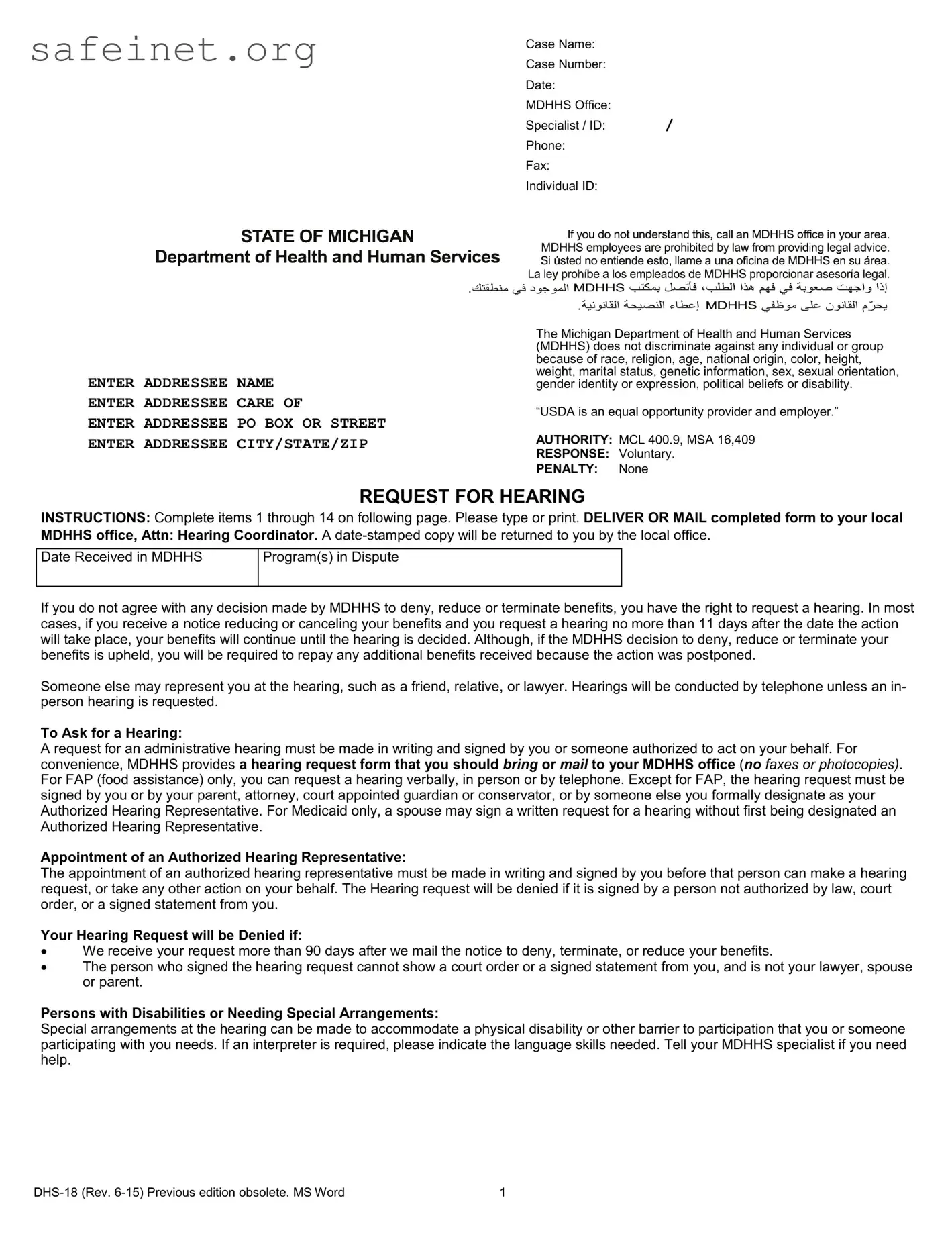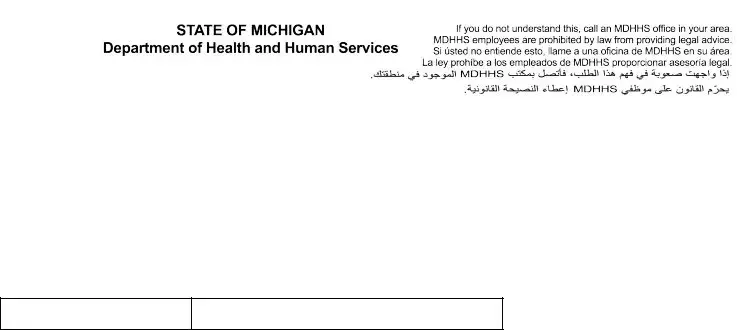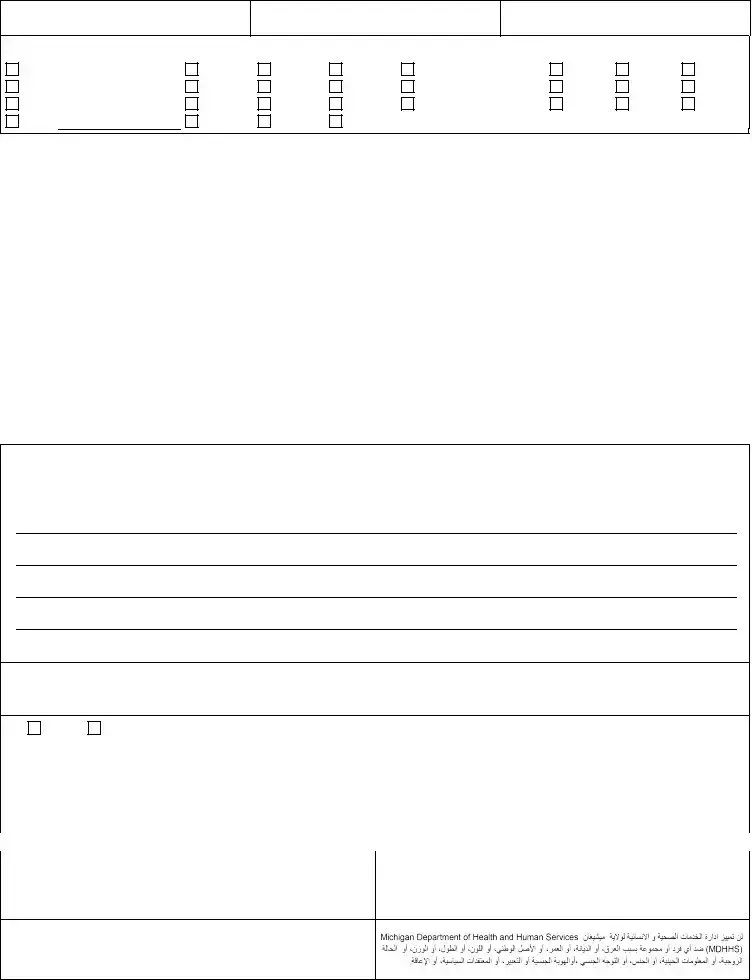What is the DHS 18 form used for?
The DHS 18 form is a request for a hearing related to decisions made by the Michigan Department of Health and Human Services (MDHHS). This form allows individuals to challenge decisions that deny, reduce, or terminate various benefits such as cash assistance, medical assistance, food assistance, and child care. By submitting this form, recipients can seek an administrative law judge’s review of the decision made by MDHHS.
How do I fill out the DHS 18 form?
Start by providing basic information in the specified fields, including case name, case number, and individual ID. Next, check the box corresponding to the benefit program(s) you are contesting, and explain why you believe the decision is incorrect. Complete all applicable sections including your contact information and that of any representative, if applicable. Ensure to type or print legibly for clarity.
Where should I send the completed DHS 18 form?
The completed form must be delivered or mailed to your local MDHHS office, specifically to the attention of the Hearing Coordinator. It’s important to retain a copy for your records, as MDHHS will provide a date-stamped copy upon receipt.
What happens after I submit the DHS 18 form?
After submission, MDHHS will process your request and set a date for the hearing, which typically occurs over the phone unless you request an in-person hearing. You should receive confirmation of your hearing date along with information on what to expect during the process.
How long do I have to request a hearing?
You have 90 days from the date MDHHS notifies you of their decision to request a hearing. If you are contesting a decision that reduces or terminates benefits, you must make this request within 11 days of the notice to ensure ongoing benefits until the hearing concludes.
Can someone else represent me at the hearing?
Yes, you may designate someone else, like a friend or relative, to represent you at the hearing. This individual must be authorized in writing and their signature must accompany the DHS 18 form unless they are your lawyer, spouse, or parent, in which case no additional authorization is required.
What are the consequences if my request for a hearing is denied?
Your request may be denied if it is submitted late or if the person signing it is not authorized legally. If the request is denied, you will receive notification explaining the reasons, and no hearing will take place regarding the benefits in question.
What if I need special accommodations for the hearing?
If you require special accommodations due to a physical disability or need an interpreter, you should indicate these needs on the form. MDHHS can make arrangements to facilitate your participation. It’s crucial to communicate these requirements as early as possible to ensure proper support.
Will my benefits continue during the hearing process?
If you request a hearing within the stipulated time frame, your benefits may continue until a decision is reached. However, if the MDHHS decision is upheld, you will have to repay any benefits received during this period of postponement.
What should I do if I disagree with the accommodations provided at the hearing?
If you believe your request for special assistance has been denied unjustly during the hearing, you have the right to file a discrimination complaint using the DHS-866 form. Follow the instructions provided in that form to submit your complaint to the MDHHS Office of Human Resources.


